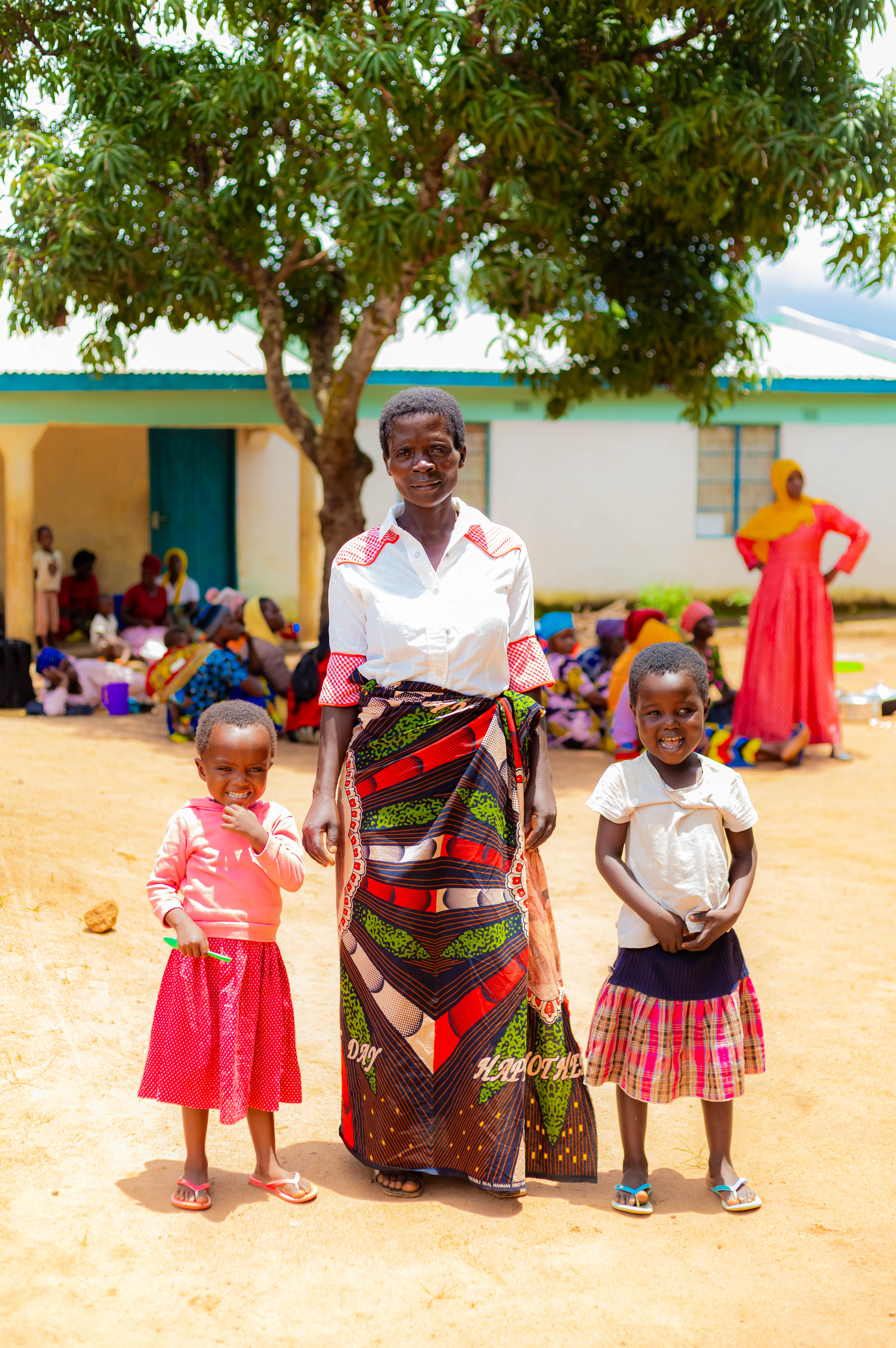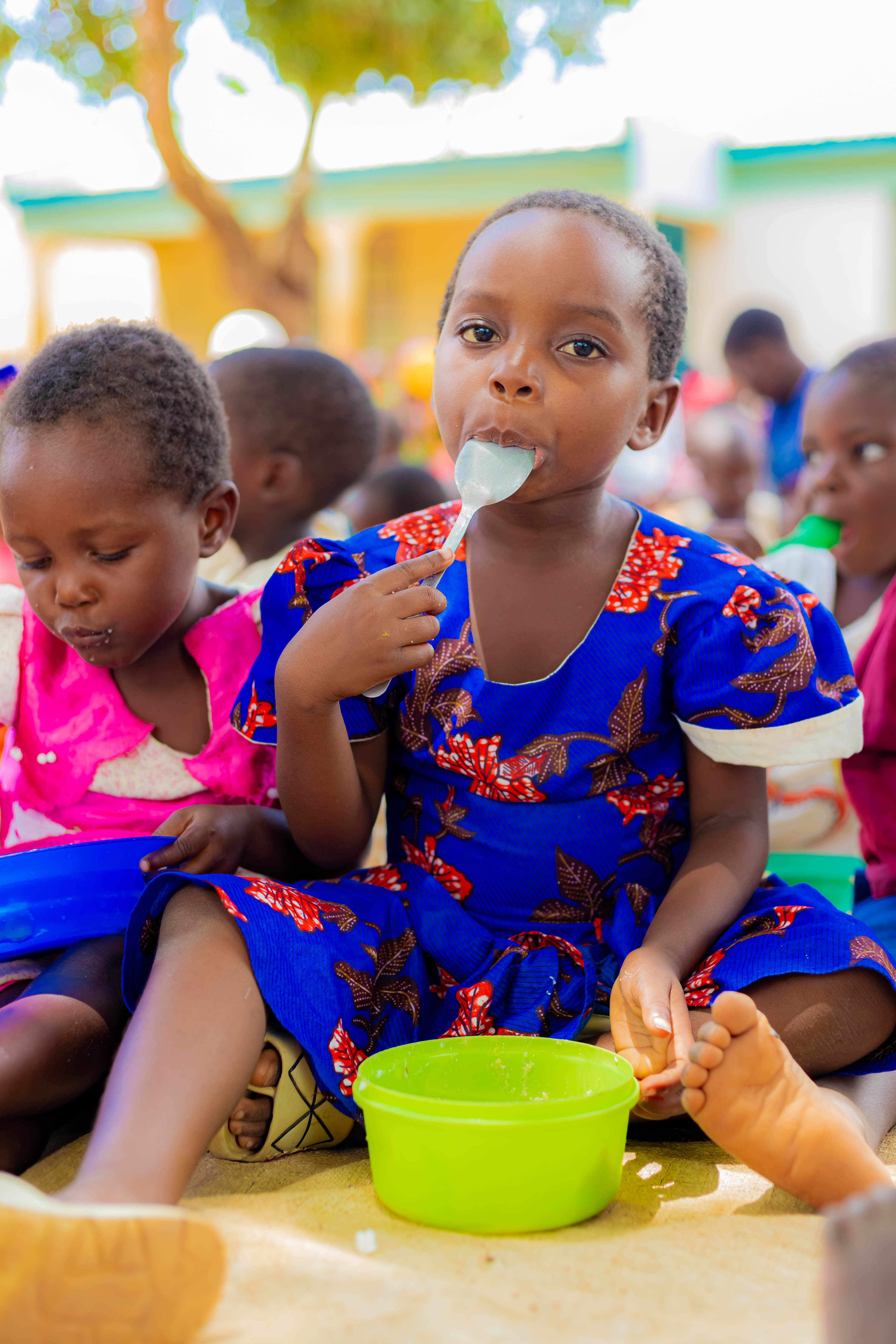Community-led Complementary Feeding Lessons and Sessions reducing malnutrition in Chamba.
42 year-old Mary Samson from Chimombo village in the area of Traditional Authority Chamba in Machinga has lived a life that required her have enough money for even such basic things as vegetables at her household.
Due to pressing financial challenges, she could not afford to give her children balanced meals as her homestead lacked even mango fruit trees. As such, her children often grew languid and bony.
“I have had challenges with feeding my children properly as I have not been able to afford proper meals for them. For us to have well-balanced meals, we need to have money which is even a huge challenge,” says Samson.
But World Vision’s Community-led Complementary Feeding Lessons and Sessions (CCFLS) have changed many households like Samson’s. The model, which has 12-day-running cooking sessions has capacitated mothers how to prepare nourishing meals using community-provided food stuffs.
The model has helped Samson make her own backyard garden where she is able to grow a variety of vegetables and fruits.
To Oliver Yunus, 42, the cooking sessions have saved her granddaughter from severe malnutrition. Four-year-old Shahida developed malnutrition at the age of two, but with the CCFLS, Yunus has been able to participate in the sessions which have helped her make well-balanced meals for her granddaughter. Now four years and seven months old, shahida is healthy and weighs over 18 kilograms.
“The cooking sessions have been so helpful to me as my granddaughter just got a tremendous improvement on her health after she was almost declared severely undernourished. But the CCFLS that World Vision introduced in this community have helped a lot. It actually saved her life and I am so grateful,” says Yunus.
The CCFLS model works with care groups under the coordination of health promoters. Currently there are over 18 care groups in Chamba with over 201 care group volunteers under the tutelage of 17 promoters.
The CCFLS model also encourages the care groups to have community gardens on which they can grow various food crops.
The model has strengthened community structures with the involvement of male champions. 38 year-old Leonard James is among the 55 male champions in Chamba community. He has been instrumental in carrying out campaigns on improved health and nutrition to the communities where men are often times reluctant.

“I joined the care group because I wanted to be part of the change that is needed in this community. Our community has been grappling with high malnutrition rate and malaria incidences. So, when World Vision came with this model, I took it as an opportunity to help bring the change. So far, my household is improved as I no longer have as frequent sickness incidents among my children as before, and I want fellow men to emulate this,” says James.
Since the adoption of the CCFLS model, malnutrition among under-five children has declined from 40 percent in 2022 to 36 percent by 2024. It is believed the rate will keep improving as the intervention has proved to be highly sustainable with the involvement of the male champions.